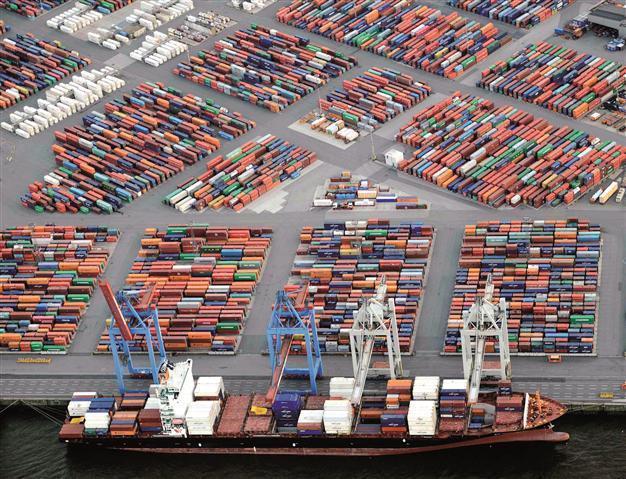World Bank to arbitrate EU, Turkey trade accord
ANKARA - Hürriyet Daily News

The World Bank will assess the pros and cons of the Customs Union in response to complaints raised by both Turkey and the EU. The efficiency of the Customs Union has appeared as an issue after the emergence of the possibility of the EU and US reaching free trade deal that would affect Turkey adversely.
The World Bank has started to study the functioning of the Customs Union agreement between Turkey and the European Union upon appeals from the two sides after each side accused the other of violating the deal in force since 1996. The Bank is set to submit a report to both sides this fall that will set a basis for Ankara and Brussels to seek ways to overcome existing problems.“There are irritants on both sides on the functioning of the Customs Union. We try to find a solution. We, together with Turkey, asked the World Bank to study comprehensively the functioning of the Customs Union with its advantages and disadvantages,” Jean-Maurice Ripert, head of the European Union’s delegation to Turkey told Ankara bureau chiefs of media outlets yesterday.
Ripert said that the report, to be drafted by a special team established at the bank’s headquarters, was expected to be ready this fall. Ankara and Brussels would then use this report as a basis for their assessment on the current functioning of the Customs Union.
A commission from the World Bank is expected to arrive in Ankara to hold talks with Turkish and EU officials in the coming weeks.
The decision to call on the World Bank to study the Customs Union was given at the end of last year after both sides criticized each other for violating the Customs Union agreement.
US-EU deal concerns
Prominent members of the Turkish government, EU Minister Egemen Bağış and Trade Minister Zafer Çağlayan publicly threatened the EU that Turkey could consider quitting the Customs Union if Brussels did not agree to review the agreement. The Turkish government’s unease has increased especially after the EU and the United States announced discussions to establish a bilateral trade pact that could hamper Turkey’s foreign trade with both the U.S. and the E.U. In the meantime, the EU’s share in Turkey’s trade has continued to decrease; once its portion was over than 50 percent, now it’s only around 37 percent. For Ripert, the reason for this decrease is the ongoing economic slowdown in many European Union countries. But he stressed that despite this decrease the foreign direct investment of European countries to Turkey was still on the rise. “Seventy-five to 80 percent of the FDI to Turkey is coming from European countries,” he said.
















